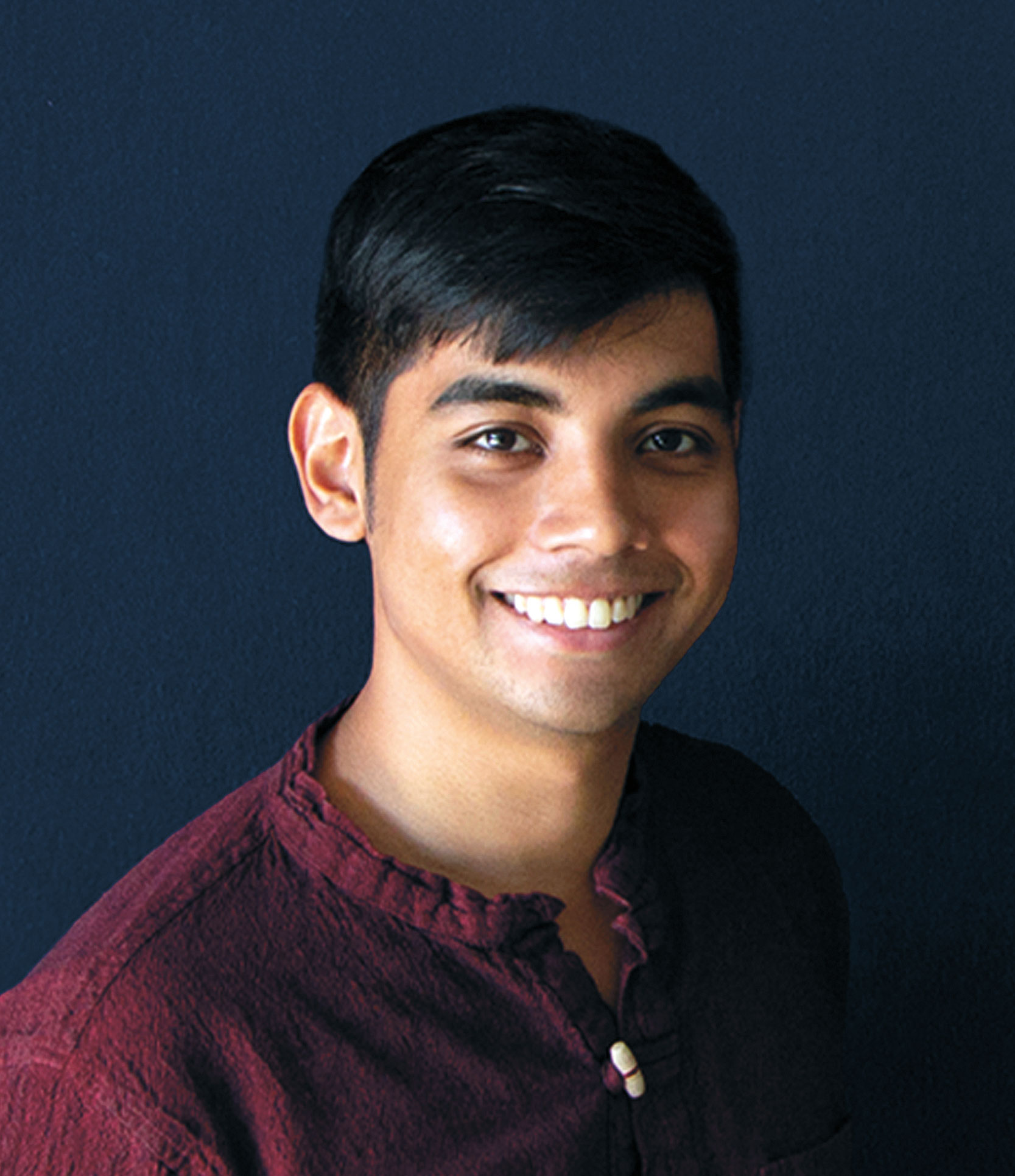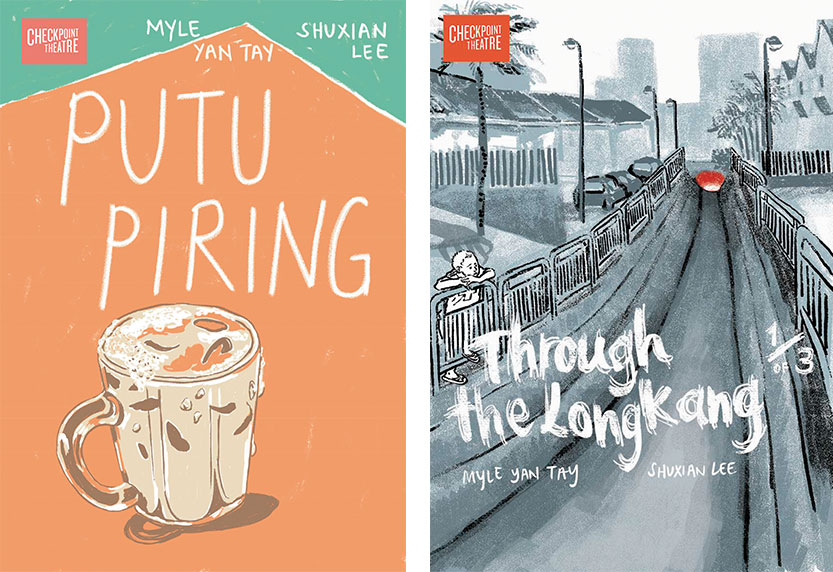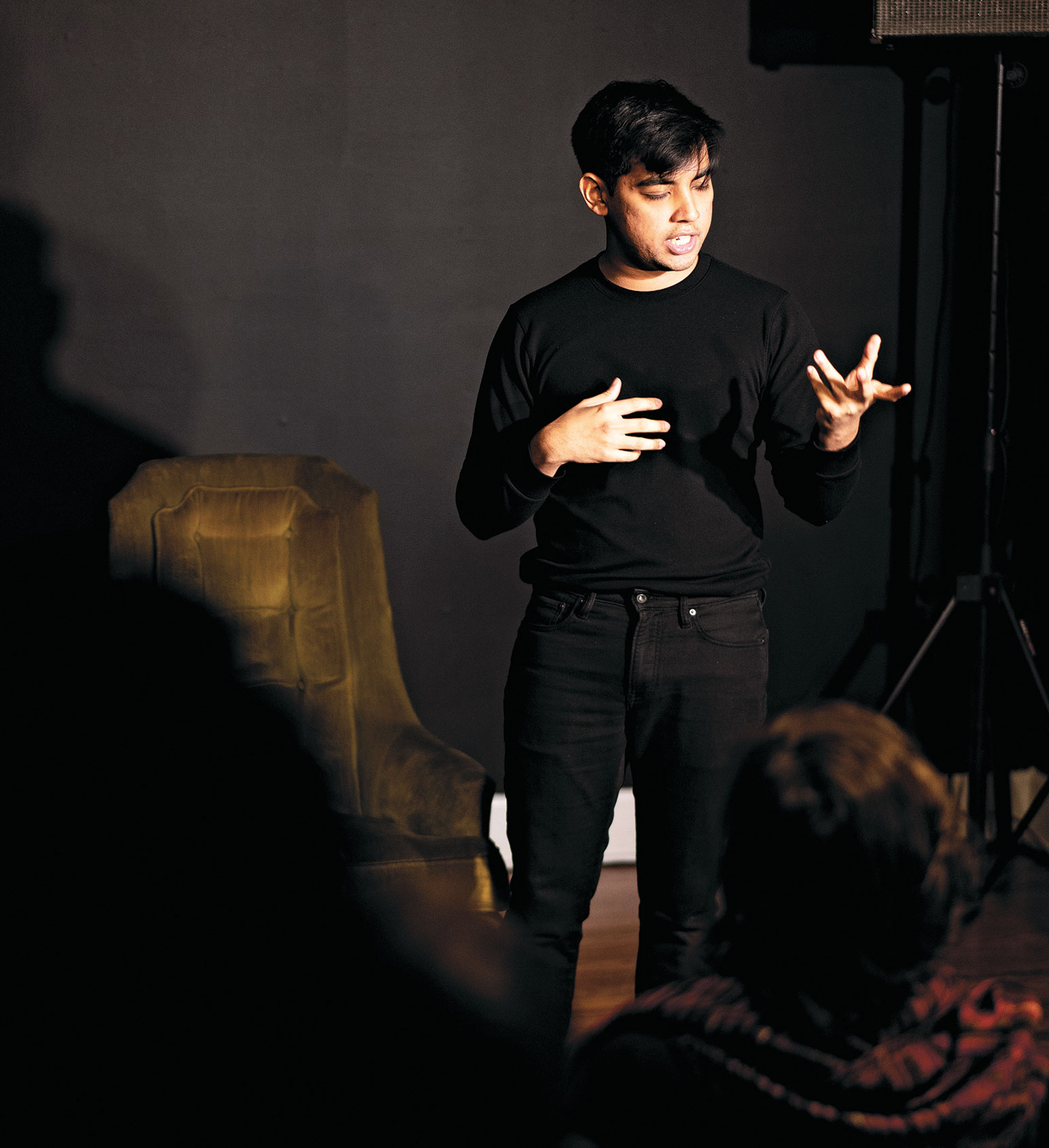On the Write Track
Storyteller, stage actor and scribe – Mr Myle Yan Tay (Yale-NUS ’19) is the local arts scene’s practitioner to watch.

Provocative, trailblazing romp about homosexual culture in Singapore, and a Bollywood-esque coming-of-age tale of a young boy growing up in India. These productions proved to be metaphorical forks in the road for Mr Myle Yan Tay, showing him that an involvement in the arts was on the cards. The first, W!LD RICE’s 2013 production of Alfian Sa’at’s Dreamplay: Asian Boys Vol. 1, was, in his words, “eye-opening”. “[It] made me realise how diverse Singapore’s artistic landscape could be, and how its theatre scene was not bound by the same rules as those of Singaporean society.” The second, Checkpoint Theatre’s 2015 production of Shiv Tandan’s The Good, the Bad and the Sholay, helped him understand the work he wanted to make. “Art that is funny, poignant, energetic and culturally specific.” These formative experiences have placed the 28-year-old actor, writer, director and Associate Artist at local theatre company, Checkpoint Theatre, firmly on track as one of Singapore’s rising creatives.
Opening doors
In search of a broad liberal arts education and an understanding of the world before pinning down a career path, Mr Tay had enrolled at Yale-NUS College to major in Global Affairs. By the time he graduated in 2019, he had already begun telling original stories and building an impressive body of work. He wrote and directed Overtime: An Original Musical, about a man who works at the Ministry of Competency, and his best friend, Alex, a playwright who can’t write plays; and also wrote and directed Master Race, a full-length play that imagines a future Singapore where people can undergo a scientific procedure to change their race. He also wrote several short plays – Growing Up Green, Post-Human and The Bank Job – which were performed at Yale-NUS College.
 The covers of Mr Tay’s comic books, each presenting a unique perspective of Singapore.
The covers of Mr Tay’s comic books, each presenting a unique perspective of Singapore.
To date, Mr Tay’s creative mind has also birthed reviews on online arts, culture and politics journal F Newsmagazine; and comic books Putu Piring and Through the Longkang, both published by Checkpoint Theatre. The former is about a man who returns to his childhood haunt with his favourite snack; the latter is a three-part horror adventure series about a teenager who unwittingly finds himself in an otherworld after climbing into a drain to retrieve his football. Both publications, created in collaboration with illustrator Shuxian Lee, have been well-received. Notably, Putu Piring’s first print run of 250 copies sold out quickly, leading to a second run of 500. His reviews are also hosted on his own site, myleyantay.com.
![]()
I don’t think it’s about reconstructing the arts to make people view it as essential. It’s about making it such that Singaporeans see art as enjoyable.
Hello, providence
Mr Tay recalls how his mother took him to “a lot of plays” while he was growing up and how his parents were “big readers who also got me interested in writing”. The more they went to the theatre, the more he understood what he enjoyed and did not. Checkpoint Theatre’s Joint Artistic Director Mr Huzir Sulaiman has also been a driving force since they met in 2016, when he taught an interdisciplinary performance class during Mr Tay’s freshman year. Mr Huzir, whom he now counts as a colleague and friend, encouraged him to take on the challenge of putting on the assistant director’s hat for Checkpoint Theatre’s production of Lucas Ho’s FRAGO. Soon after, Mr Tay auditioned to perform in Checkpoint’s production of Eat Duck and was subsequently invited to be a full-time executive.
Currently based in the United States, where he is completing his Master’s in Fine Arts in Writing at the School of the Art Institute of Chicago (SAIC), Mr Tay says his Yale-NUS College days have helped shape his artistic journey. “I can’t overstate how essential [the school] was to my development as an artist and as a person. The facilities and resources allowed me to experiment with my artistic practice as a writer and director, which, in the early years, led to a lot of failures,” he says. “These helped me learn how to improve on past mistakes — and importantly, understand that art is more than just its end product. It’s about the process, the people you meet and the connections that deepen.” He adds that the Yale-NUS College community was pivotal in helping him connect with not just splendid and talented artists but generous and kind people. It was there, he says, that he experienced a robust creative writing programme that both encouraged him to keep writing and to constantly seek improvement. His lecturers, Professor Robin Hemley and Ms Pramodini Parayitam, also led him to consider writing as a possible career path.
But it wasn’t just the creative classes he took that made the biggest impact. “I’ve always been interested in political science, but Yale-NUS College helped me realise that I could merge my intellectual curiosity with my artistic passions,” he says. “Most of my work remains about politics in some way.” He is thankful for those opportunities, which he doubts he would have had elsewhere. “More than anything, I learnt at Yale-NUS College that if trying and failing is the worst thing that can happen, then it’s worth a shot anyway,” he adds. “I know for a fact I wouldn’t have pursued this path without Yale-NUS College, and I wish that other young people could have that same experience.”

An eye on the future
One of the biggest challenges he sees facing Singapore artists today is how Singaporean society views the arts. “I don’t think it’s about reconstructing the arts to make people view it as essential. It’s about making it such that Singaporeans see art as enjoyable,” he explains. “That’s what I’ve been thinking about — how to make work that is challenging but also rewarding to experience.” He cites time management as another challenge: “So many Singaporean artists have to work in two industries at once to maintain their creative practice. And when that happens, it becomes harder and harder to prioritise their artistic drive.” He does not think Singaporean artists can change the country’s financial landscape and make it possible to live off an artist’s wage. Yet they can be “aware of which segments of the population have more difficulty with accessing the arts and make sure the gates stay open for all”.
While deepening his skills and “learning how to write for new audiences and in new mediums” at SAIC, Mr Tay is collaborating with writer-activist Mr Kristian-Marc James Paul (Yale-NUS ’19) and former journalist Ms Mysara Aljaru on an upcoming anthology with Ethos Books about minority race experiences in Singapore. He is also developing multiple works for Checkpoint Theatre, including a graphic novel and an upcoming play that looks at the experience of minority males in Singapore, which Checkpoint hopes to stage in 2023. Mr Tay remains unsure of his plans after he completes his master’s degree. The pandemic has made him reconsider what long-term planning should look like because he knows how easily the world can change and how important it is to be flexible. “Regardless of where I am, I hope to be writing and teaching in the media and genres of plays, prose, comic books, science fiction, horror, thriller and political drama,” he shares. “I can’t imagine doing anything else.”
Text by Tina Wang . Cover visuals of Through the Longkang and Putu Piring courtesy of Checkpoint Theatre, illustrated by Shuxian Lee.